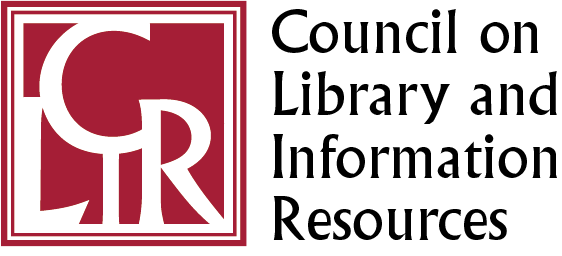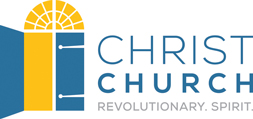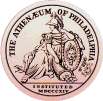Second Presbyterian Church, Philadelphia, PA
Metadata
Title
Second Presbyterian Church, Philadelphia, PA
Digital Identifier
Second Presbyterian Church, Philadelphia, PA
Description
Presbyterians who favored the religious revivalism of George Whitefield organized a Second Presbyterian Church in Philadelphia in 1743. Second was a “New Side” church as opposed to the “Old Side” First Presbyterian Church. For many years, the congregation worshipped in its building at Third and Arch streets, where the first General Assembly of the Presbyterian Church in the U.S.A. met in 1789. In 1837, the church moved to Seventh and Arch, and in 1872, to 21st and Walnut. In 1949, the congregation united with First Presbyterian Church.
Records scanned for this project include minutes, pew records, deeds, and burial records.
Records scanned for this project include minutes, pew records, deeds, and burial records.
Selected Items from the Collection
Session minutes, 1744–1798
The Session is a body of elected elders governing a Presbyterian church. In this bound volume, the Session is referred to as the Consistory until 1767. Meeting minutes run from 1744 to 1798, and note the date, members present, and business…
Pew rent records, vol. 1, 1781
The practice of renting pews was common in 18th and 19th century churches; members paid a fee for the right to occupy a particular pew every week. This bound manuscript is a record of pew rents paid to Second Presbyterian in 1781. Entries are listed…
Pew rent records, vol. 2, 1783-1789
The practice of renting pews was common in 19th century churches; members paid a fee for the right to occupy a particular pew every week. This bound manuscript is a record of pew rents paid to Second Presbyterian from 1783 to 1789. Entries are listed…
Pew rent records, vol. 3, 1792-1793
The practice of renting pews was common in 19th century churches; members paid a fee for the right to occupy a particular pew every week. This bound manuscript is a record of pew rents paid to Second Presbyterian from 1792 to 1793. Entries include…
Pew rent records, vol. 4, 1793
The practice of renting pews was common in 19th century churches; members paid a fee for the right to occupy a particular pew every week. This bound manuscript is a record of pew rents paid to Second Presbyterian in 1793. Entries are listed by pew…
Pew rent records, vol. 5, 1793-1794
The practice of renting pews was common in 19th century churches; members paid a fee for the right to occupy a particular pew every week. This bound manuscript is a record of pew rents paid to Second Presbyterian from 1793 to 1794. Entries are listed…
Pew rent records, vol. 6, 1794-1795
The practice of renting pews was common in 19th century churches; members paid a fee for the right to occupy a particular pew every week. This bound manuscript is a record of pew rents paid to Second Presbyterian from 1794 to 1795. Entries are listed…
Pew rent records, vol. 7, 1794-1795 and burial records, 1867
The practice of renting pews was common in 19th century churches; members paid a fee for the right to occupy a particular pew every week. This bound manuscript includes a record of pew rents paid to Second Presbyterian from 1794 to 1795. Entries are…
Pew rent records, vol. 8, 1795
The practice of renting pews was common in 19th century churches; members paid a fee for the right to occupy a particular pew every week. This bound manuscript is a record of pew rents paid to Second Presbyterian in 1795. Entries are listed by pew…
Pew rent records, vol. 9, 1796-1798
The practice of renting pews was common in 19th century churches; members paid a fee for the right to occupy a particular pew every week. This bound manuscript is a record of pew rents paid to Second Presbyterian from 1796 to 1798. Entries are listed…
Congregational, corporation, and trustees minutes, vol. 1, 1749-1775
Congregational minutes from 1749, 1751 to 1755, and 1759 to 1772 run through page 163 of this bound manuscript, then the trustee minutes from January 1773 to January 1775 begin at the back of the book, upside down, and continue until page…
Congregational, corporation, and trustees minutes, vol. 2, 1772-1805
Minutes of the Second Presbyterian trustees, corporation and congregational meetings from 1772 to 1805 are all recorded together in this bound manuscript, in chronological order. Meetings cover topics including but not limited to: elections to church…
Congregational, corporation, and trustees minutes, vol. 3, 1792-1803
Rough draft ("Rough Draught") of minutes for meetings of the Second Presbyterian Church trustees, corporation and congregation from 1792 to 1803. Meetings cover issues such as church committees, church finance, and the need to accommodate a growing…
Act re-establishing the charter, 1780
During the American Revolution, the trustees of the Second Presbyterian Church found it difficult to gather the quorum required by their original charter in order to conduct church business. They also desired the freedom to hold property in a greater…
Estimate of damages and repairs from the British occupation, 1778-1783
Cost of damages suffered by Second Presbyterian Church while British troops occupied Philadelphia during the American Revolution; the estimates were made in 1778 and certified in 1783. Pews, fencing, and a chandelier all had to be repaired or…
Burial lists and sexton's accounts, 1783-1799
18 loose pages documenting the individuals buried in the graveyard of Second Presbyterian Church from 1783 to 1799. Individual burial dates are not included, but date ranges are provided. Children are often listed with only a parent's name, and it is…
Burial records, vol. 3, 1804-1810
Record of persons buried in Second Presbyterian's graveyard from 1804 to 1810. More details are included in this bound manuscript than in the sexton's records covering the same time period. The book is written in sideways to create a wider page for…
Burial records, vol. 4, 1804-1838, and sexton's accounts, 1818-1837
This bound manuscript holds three main groups of records, which are not in chronological order. First, sexton's records of burials from 1826 to 1832, including the date, person buried, and fees paid. Second, records of the sexton's expenditures…
Burial records, vol. 7, 1867
Record of persons buried in Second Presbyterian Church's Noble Street burial ground, who were moved to Mt. Vernon cemetery in 1867. Each burial listing includes the original grave number, name of deceased, the location of their grave after…
Burial records, vol. 8, 1867
Record of persons buried in Second Presbyterian Church's Arch Street burial ground, who were moved to Mt. Vernon cemetery in 1867. Each burial listing includes the original grave location, name of deceased, the location of their grave after…
Burial records, vol. 1, 1785-1808
Account of people buried in the graveyard of Second Presbyterian Church from 1785 to 1808. Each listing through page 45 records the date of burial and name of deceased, or in some cases parent's name, and notes if the decedent or parent is a stranger…
Burial records, vol. 2, 1804-1867
Record of persons buried in Second Presbyterian's northern burial ground between 1804 and 1867. Burials are grouped by range, then listed by plot number, with the name of the deceased and age at time of death. This bound manuscript was used by the…
Burial records, vol. 9, 1826-1910
Receipt book with stubs for interments at Second Presbyterian Church from 1826 to 1910. Each stub lists the date, name of deceased, at which burial ground they were laid to rest, and fees paid.
Note: Scanned image "Insert 4" is an attachment to page…
Note: Scanned image "Insert 4" is an attachment to page…
Burial records, v. 6, 1838-1850
Record of persons buried at Second Presbyterian Church from 1838 to 1860. Burials are listed by permit number, and include date of death or burial, name of deceased, place of birth, age at time of death, occupation, cause of death, whether the…
Burial records, vol. 5, 1851
Record of persons buried at Second Presbyterian Church in 1851. Burials are listed by name of deceased, and include date and cause of death, age at time of death, and location of grave.
Charter, 1772
Charter for Second Presbyterian Church, located at the northwest corner of Third Street and Mulberry Street, issued by Thomas and John Penn, witnessed by Richard Penn, and "Inrolled in the Rolls Office" in 1772.
Deed, 1784
Deed of land, granted by William and Margaret Coats to the trustees of Second Presbyterian and signed and dated October 20th, 1784 by William Rush. The lot is located at Campington in Northern Liberties, beginning at the corner of Coates & Second…
Counterpart deed, 1784
Counterpart deed of land, granted by William and Margaret Coats to the trustees of Second Presbyterian, and attested by Robert Smith. The lot is located at Campington in Northern Liberties, beginning at the corner of Coates & Second Street and…
Deed, 1788
Land previously deeded by Thomas and Mary Coates to the trustees of Second Presbyterian Church in 1784, in 1788 deeded to James Hartley, as witnessed by William Rush and Peter Thomson.
Correspondence regarding leasing of church property, 1784-1826
Twenty-nine pages of correspondence between Second Presbyterian and various Philadelphia merchants who leased land and/or buildings from the church over the years spanning 1784 to 1826. Topics include lease terms, requests for reduction in rent,…
Financial records, 1764-1808
Twenty-one documents relating to Second Presbyterian's finances, including lease agreements, bonds, protests of non-payment, promissory notes, and insurance policies, dating from 1764 to 1808.
Memoranda book, pew rent and Sunday collections, 1793-1795
Memoranda book with brief entries running chronologically from 1793 to 1795, listing congregant names with amounts received for pew rents, as well as totals received in church collections.
Schoolmaster records, 1786-1791, John Ely
In 1787, schoolmaster John Ely agreed to rent the Second Presbyterian schoolhouse and provide instruction to local children on reading, writing, arithmetic, and religion, with Second Presbyterian serving as a patron to the school and referring…
School Committee records, 1795-1798
Forty loose pages documenting the activities of the church committee charged with overseeing the development of the "congregational or charity school" in 1795. Documents include committee reports regarding school organization, securing the land and…
Gilbert Tennent sermons 1, "The Law of God," 1742 or 1743
Gilbert Tennent (1703-1764) was an Irish-American Presbyterian clergyman, and one of the leaders of the Great Awakening.
"The Law of God" sets forth the ever-present dangers of pervasive sin in the world, in diverting people from moral law and…
"The Law of God" sets forth the ever-present dangers of pervasive sin in the world, in diverting people from moral law and…
Gilbert Tennent sermons 2, Sermon on Psalms 116, 1743
Gilbert Tennent (1703-1764) was an Irish-American Presbyterian clergyman, and one of the leaders of the Great Awakening.
This sermon explores the complicated relationship between man and God, through a meditation on the behavior of David: first…
This sermon explores the complicated relationship between man and God, through a meditation on the behavior of David: first…
Gilbert Tennent sermons 3, "Two Parables: Matthew 13:47-50 (fragment) and Matthew 13:45-46," circa 1743
Gilbert Tennent (1703-1764) was an Irish-American Presbyterian clergyman, and one of the leaders of the Great Awakening.
Tennent wrote this sermon about the Parable of the Net and
the Parable of the Pearl. Preaching the Gospel is likened to…
Tennent wrote this sermon about the Parable of the Net and
the Parable of the Pearl. Preaching the Gospel is likened to…
Gilbert Tennent sermons 4, "De Creatione" (On creation), 1743 or 1744
Gilbert Tennent (1703-1764) was an Irish-American Presbyterian clergyman, and one of the leaders of the Great Awakening.
The title of this sermon translates to "On creation." In it, Reverend Tennet discusses Genesis- who and when and how long…
The title of this sermon translates to "On creation." In it, Reverend Tennet discusses Genesis- who and when and how long…
Gilbert Tennent sermons 5, "De timore Dei et Fiducia" (On the fear of God and reliance), 1743 or 1744
Gilbert Tennent (1703-1764) was an Irish-American Presbyterian clergyman, and one of the leaders of the Great Awakening.
The title of this sermon translates to "On the fear of God and reliance." Tennet wrote a later revision (discernible by darker…
The title of this sermon translates to "On the fear of God and reliance." Tennet wrote a later revision (discernible by darker…
Gilbert Tennent sermons 6, "De securitate carnali" (On the freedom from care or carelessness of mortal man), 1743 or 1744
Gilbert Tennent (1703-1764) was an Irish-American Presbyterian clergyman, and one of the leaders of the Great Awakening.
The title of this sermon translates to "On the freedom from care or carelessness of mortal man." Tennent warns against feeling…
The title of this sermon translates to "On the freedom from care or carelessness of mortal man." Tennent warns against feeling…
Gilbert Tennent sermons 7, "De inimicitia irrenatorum" (On the enmity of the not born-again), 1743
Gilbert Tennent (1703-1764) was an Irish-American Presbyterian clergyman, and one of the leaders of the Great Awakening.
The title of this sermon, which Tennent delivered first in 1743, then again in 1746 and 1747, translates to "On the enmity of…
The title of this sermon, which Tennent delivered first in 1743, then again in 1746 and 1747, translates to "On the enmity of…
Gilbert Tennent sermons 8, "De Baptismo" (On baptism), 1743 or 1744
Gilbert Tennent (1703-1764) was an Irish-American Presbyterian clergyman, and one of the leaders of the Great Awakening.
This sermon, which Tennent preached in 1743 or 1744, is a rumination on Acts 10:47, "Can any man forbid water, that these should…
This sermon, which Tennent preached in 1743 or 1744, is a rumination on Acts 10:47, "Can any man forbid water, that these should…
Gilbert Tennent sermons 9, "De Baptismo, sermon 2," 1743 or 1744
Gilbert Tennent (1703-1764) was an Irish-American Presbyterian clergyman, and one of the leaders of the Great Awakening.
This sermon, which Tennent preached in 1743 or 1744, is an expansion upon his previous sermon "De Baptismo" (On baptism). First…
This sermon, which Tennent preached in 1743 or 1744, is an expansion upon his previous sermon "De Baptismo" (On baptism). First…
Gilbert Tennent sermons 10, "De Electione" (About being chosen), 1743 or 1744
Gilbert Tennent (1703-1764) was an Irish-American Presbyterian clergyman, and one of the leaders of the Great Awakening.
The title of this sermon, which Tennent delivered in 1743 or 1744, translates to "About being chosen." It is a rumination on…
The title of this sermon, which Tennent delivered in 1743 or 1744, translates to "About being chosen." It is a rumination on…
Gilbert Tennent sermons 11, "De decreto" (On God's Decree), 1743 or 1744
Gilbert Tennent (1703-1764) was an Irish-American Presbyterian clergyman, and one of the leaders of the Great Awakening.
In this sermon, which Tennent first delivered in 1743 or 1744 and again in 1747, Tennent discusses the theme of Ephesians 1:11,…
In this sermon, which Tennent first delivered in 1743 or 1744 and again in 1747, Tennent discusses the theme of Ephesians 1:11,…
Gilbert Tennent sermons 12, "De judicio ultimo" (On the last judgement), 1743
Gilbert Tennent (1703-1764) was an Irish-American Presbyterian clergyman, and one of the leaders of the Great Awakening.
At the beginning of this sermon, Tennent references the following biblical verses: Ecclesiastes 11:9, 1 Thessalonians 5:2,…
At the beginning of this sermon, Tennent references the following biblical verses: Ecclesiastes 11:9, 1 Thessalonians 5:2,…
Gilbert Tennent sermons 13, "Sermo Supra Rev. 3:20" (Sermon on Revelation 3:20), 1743 or 1744
Gilbert Tennent (1703-1764) was an Irish-American Presbyterian clergyman, and one of the leaders of the Great Awakening.
Revelation 3:20: "Behold, I stand at the door, and knock: if any man hear my voice, and open the door, I will come in to him,…
Revelation 3:20: "Behold, I stand at the door, and knock: if any man hear my voice, and open the door, I will come in to him,…
Gilbert Tennent sermons 14, "De Hexameron" (On the six days of creation), 1744
Gilbert Tennent (1703-1764) was an Irish-American Presbyterian clergyman, and one of the leaders of the Great Awakening.
In this sermon, Tennant talks about the six days of creation. In the beginning of the sermon, he cites Genesis 1:1 and Psalms…
In this sermon, Tennant talks about the six days of creation. In the beginning of the sermon, he cites Genesis 1:1 and Psalms…
Gilbert Tennent sermons 15, "De Federe Nature" (On the nature of the covenant), 1744
Gilbert Tennent (1703-1764) was an Irish-American Presbyterian clergyman, and one of the leaders of the Great Awakening.
This sermon follows "De federe operum (On the covenant of works)." Tennent begins with the following two Bible verses:
Hosea…
This sermon follows "De federe operum (On the covenant of works)." Tennent begins with the following two Bible verses:
Hosea…
Gilbert Tennent sermons 16, "De Federe operum," (On the covenant of works), 1744
Gilbert Tennent (1703-1764) was an Irish-American Presbyterian clergyman, and one of the leaders of the Great Awakening.
Tennent wrote this sermon about the covenant God made with Adam, and notes the following Bible verse on page 1: Genesis 2:16-17,…
Tennent wrote this sermon about the covenant God made with Adam, and notes the following Bible verse on page 1: Genesis 2:16-17,…





